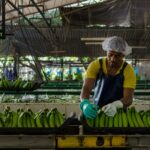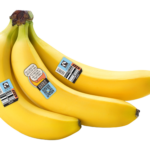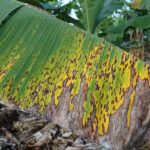Nicaraguan banana exporter enjoys switch from U.S. to EU

In what used to be predominantly a U.S. market-focused business, a leading Nicaraguan banana exporter has shifted its strategy towards Europe and plans to double its production area by 2020. 
Enrique Gasteazoro of grower-shipper Caipsa says his operation accounts for a quarter of what is a relatively niche industry compared to other banana-growing countries like Guatemala, Colombia or Ecuador, exporting around six million cartons of the fruit annually.
"Almost 90% of the bananas from Nicaragua are going to Europe, which is something new for us. Beforehand most of the export bananas went to the United States," he tells Fresh Fruit Portal.
He says this change has occurred in a matter of just a few years.
"In the case of our company we are sending 100% to Europe, basically to Germany and a little bit to England," he says.
"I don’t know how much is the market component and how much is the buyer component," he says of his newfound success.
The buyer is Fyffes, and since exporting to the now Japanese-owned Irish company Gasteazoro has been more content with a "better situation than before".
"We have been working with them for three years...it's a different company - they have a bit more of a human touch despite being a large company," he says.
"They are different to the well-known American companies – a lot of European tradition, a lot of contact with the exporter and a lot of support.
"Speaking of support, we’ve had significant support from our Nicaraguan Government, basically through ProNicaragua which is dedicated to promoting Nicaragua, and other government entities."
According statistics from the Nicaraguan Central Bank, exports have been growing at an annual rate of 18% while in the 2016 calendar year the industry notched export returns of US$37.8 million.
A ProNicaragua spokesperson said most of this amount came from exporters shipping through customs-free areas, with a "significant" portion attributed to Caipsa and another exporter, Nicaragua Banana Corp (NBC).
"In 2016, the company AgroLider joined the customs-free regime and it is expected that company will contribute to the banana industry's growth," she said, adding the main destinations were the U.S., Europe and Central America.
Gasteazoro says while the industry is small, its quality is very high, boosted "exceptional soil" and an important human element of people who are committed to their work.
"I think we have the best banana-growing soils in the world. Then we have a climate that is warm during the day but cool at night, and that change between cold and warmth helps the Brix, or the sweetness of the product," he says.
"It's very good quality fruit and it also is very sought after because it has all the certifications that are required in international markets like GlobalG.A.P. and Rainforest Alliance."
And is Caipsa getting involved with organic fruit production as well?
"At the moment no but in the short-term there’ll be an organic project, and in the case of our company we are so close to having fair trade that we are thinking of applying for that certification," he says.
He says the country has around 2,000 hectares of bananas in production with around 20 packhouses between the four main production groups.
"We believe that in three or four years, together we could have double the area. That’s a realistic goal to reach 4,000-5,000 [hectares] in bananas by 2020," he says.
"In our case we think we’ll grow 1,000 hectares more in our own area, and we think that the others will do something similar."
He says approximately 90% of production of the industry's production is in Chinandega in the country's northwest, with the remainder in nearby León.
Both these areas are a short distance from the port of Corinto, where the bananas are loaded onto ships that travel southeast along the Pacific coast to the Panama Canal, from where they can cross into the Atlantic Ocean and make their journey to Europe.
It is a logistical set-up that adds more than 800 miles to the journey when compared to how exports could go if the Nicaragua Canal comes to fruition.
"It has been a dream of Nicaragua for as long as I can remember. It’s an historic issue," he says.
"As an exporter we hope it happens someday in some way – it doesn’t necessarily need to be a water canal; whatever logistical solution for having access to our Caribbean in a competitive way will be important for our exports...that would be tremendous news for everyone."
Photo: www.shutterstock.com












































